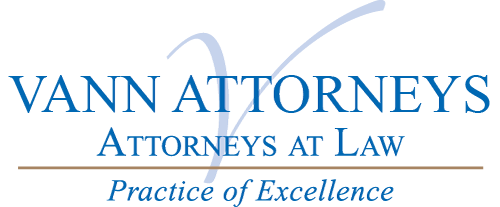Post Judgment Remedies: What To Do When All Seems Lost
By James R. Vann
Attorney at Law
Obtaining a judgment is only the initial hurdle in collecting a debt. On many occasions, a Writ of Execution will be returned by the Sheriff unsatisfied. The initial response may be to cease collection efforts. However, there are several mechanisms provided for by the law to assist creditors in their post-judgment collection efforts. These methods can be used to identify assets and even expose additional individuals and entities that can be held liable for the debt. Though not the most exciting subject area, this is where a solid understanding and application of the few creditor-friendly statutes can pay off.
North Carolina law provides for various “supplemental proceedings” to help creditors discover assets, including supplemental examinations, interrogatories and document production of the debtor’s books and records. In addition, the law allows creditors to question the debtor about property that the debtor refuses to apply to satisfaction of the judgment, order the arrest of a debtor attempting to leave the state, and require debtors of the judgment debtor to satisfy the debt.
Supplemental examinations and written interrogatories are similar in that various questions are asked to the debtor to explore their financial situation, identify assets, and to find out whether any assets have been sold or transferred. The benefit of the supplemental examination is that the creditor can ask follow up questions and create a dialogue with the debtor. A supplemental examination should be used in conjunction with a document production so that the creditor can view the debtor’s records and ask questions as necessary.
Of course, many debtors have a knack for avoiding creditors’ attempts to collect, even when a creditor knows assets exist. If a creditor believes a debtor owns assets that it refuses to apply to the satisfaction of the judgment, a creditor can obtain an order requiring the debtor to appear in court and answer questions regarding those assets. Then, the judge can order those assets sold.
Sometimes, debtors will attempt to leave the state or hide. If so, and if the creditor has reason to believe the debtor owns assets that he refuses to apply to the judgment, the court may enter an order for arrest, and require the debtor to be examined under oath. The court can then forbid the debtor from leaving the state while supplemental proceedings are carried out.
Finally, if a creditor learns that the debtor is owed money by another individual or entity, the creditor can obtain an order requiring that individual or entity to appear and testify, and the court can order that the funds or property must be used to pay the judgment.
This is just a summary of the post-judgment remedies available to creditors. Please feel free to give us a call if you would like to discuss the application of these remedies to your benefit
Wisdom, Experience, Results
Learn More from Vann Attorneys
Vann Attorneys stands ready to meet the diverse needs of clients ranging from individuals to privately held family businesses to corporations with national distribution. The firm represents clients throughout North Carolina and the United States. We periodically publish content that is relavant to our clients and community. Keep reading our 'News & Events' page on the topics most important to you and your business.
Proven
Experience on
Your Side
Leave a message
Raleigh Office
RALEIGH HOURS
| Mon | 8am - 5pm |
|---|---|
| Tues | 8am - 5pm |
| Wed | 8am - 5pm |
| Thurs | 8am - 5pm |
| Fri | 8am - 5pm |
Charlotte Office
CHARLOTTE HOURS
| Mon | 8am - 5pm |
|---|---|
| Tues | 8am - 5pm |
| Wed | 8am - 5pm |
| Thurs | 8am - 5pm |
| Fri | 8am - 5pm |



